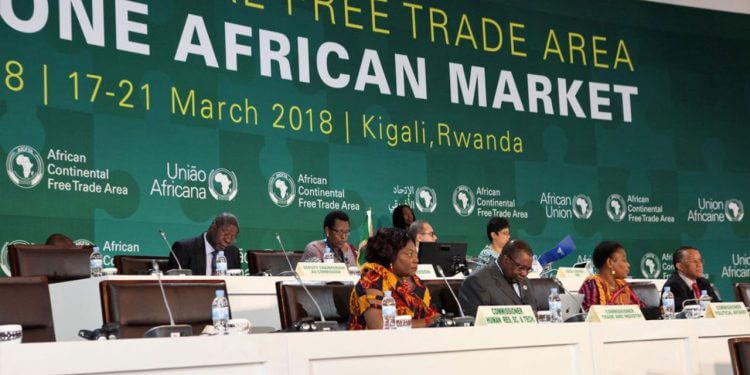The African Continental Free Trade Area (AfCFTA) represents a major opportunity for countries to boost growth, reduce poverty, and broaden economic inclusion, a new World Bank report has found.
If implemented fully, AfCFTA in Africa could boost regional income by 7% or $450 billion, speed up wage growth for women, and lift 30 million people out of extreme poverty by 2035.
The report suggests that achieving these gains will be particularly important given the economic damage caused by the COVID-19 (coronavirus) pandemic, which is expected to cause up to $79 billion in output losses in Africa in 2020. The pandemic has already caused major disruptions to trade across the continent, including in critical goods such as medical supplies and food.
ALSO READ: How the African Continental Free Trade Area (AfCFTA) could create millions of African Millionaires
Income Gains
Most of AfCFTA’s income gains are likely to come from measures that cut red tape and simplify customs procedures. Tariff liberalization accompanied by a reduction in non-tariff barriers—such as quotas and rules of origin—would boost income by 2.4 percent, or about $153 billion. The remainder—$292 billion—would come from trade-facilitation measures that reduce red tape, lower compliance costs for businesses engaged in trade, and make it easier for African businesses to integrate into global supply chains.
Successful implementation of AfCFTA in Africa would help cushion the negative effects of COVID-19 on economic growth by supporting regional trade and value chains through the reduction of trade costs. In the longer term, AfCFTA would provide a path for integration and growth-enhancing reforms for African countries. By replacing the patchwork of regional agreements, streamlining border procedures, and prioritizing trade reforms, AfCFTA could help African countries increase their resiliency in the face of future economic shocks.
Employment Opportunities
“The African Continental Free Trade Area has the potential to increase employment opportunities and incomes, helping to expand opportunities for all Africans,” said Albert Zeufack, the World Bank’s Chief Economist for Africa. “The AfCFTA is expected to lift around 68 million people out of moderate poverty and make African countries more competitive. But successful implementation will be key, including careful monitoring of impacts on all workers –women and men, skilled and unskilled—across all countries and sectors, ensuring the agreement’s full benefit.”
According to the report, the agreement would reshape markets and economies across the region, leading to the creation of new industries and the expansion of key sectors. Overall economic gains would vary, with the largest gains going to countries that currently have high trade costs. Côte d’Ivoire and Zimbabwe—where trade costs are among the region’s highest—would see the biggest gains, with each increasing income by 14 percent. AfCFTA in Africa would also significantly boost African trade, particularly intraregional trade in manufacturing. Intra-continental exports would increase by 81 percent while the increase to non-African countries would be 19 percent.
Implementation of the agreement would also spur larger wage gains for women (an increase of 10.5 percent by 2035) than for men (9.9 percent). It would also boost wages for skilled and unskilled workers alike—10.3 percent for unskilled workers, and 9.8 percent for skilled workers.
This report is designed to help countries implement policies that can maximize the agreement’s potential gains while minimizing risks. Creating a continent-wide market will require a determined effort to reduce all trade costs. This will require legislation to enable goods, capital, and information to flow freely and at easily across borders. Countries that do so will be able to attract foreign investment and increase competition that can increase productivity and innovation by domestic firms. Governments will also need to prepare their workforces to take advantage of new opportunities with new policies designed to reduce the costs of job-switching.
World Bank Group COVID-19 Response
The World Bank Group, one of the largest sources of funding and knowledge for developing countries, is taking broad, fast action to help developing countries strengthen their pandemic response. We are supporting public health interventions, working to ensure the flow of critical supplies and equipment, and helping the private sector continue to operate and sustain jobs. We will be deploying up to $160 billion in financial support over 15 months to help more than 100 countries protect the poor and vulnerable, support businesses, and bolster economic recovery. This includes $50 billion of new IDA resources through grants and highly concessional loans.
Source: World Bank Group,








